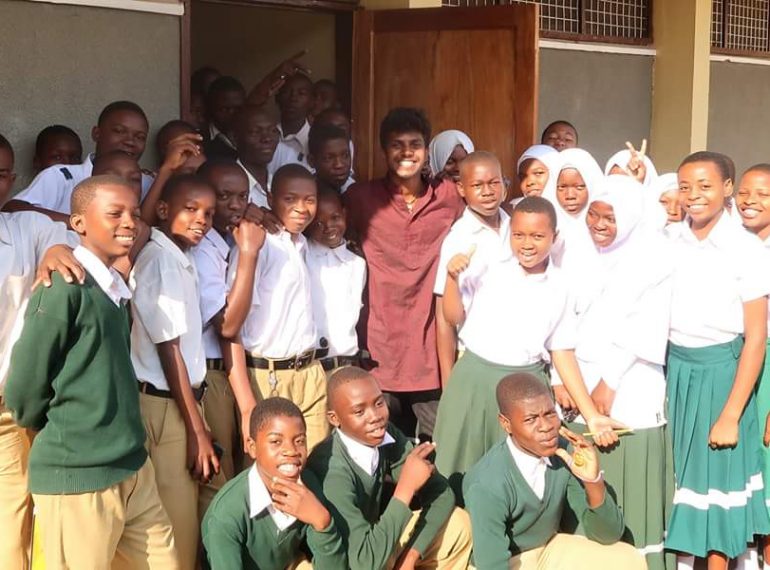
Over the past couple of years, Jonathan Gunaseelan has done innovative fundraising for UNICEF, taught children in Tanzania, Cardiff and London and helped develop a water filtration system for first-nation Canadians.
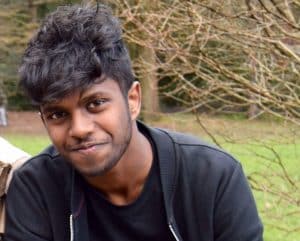 All these opportunities, and others besides, have come about through Warwick University, where Jonathan (OE 2008–2015) is now completing his Civil Engineering degree.
All these opportunities, and others besides, have come about through Warwick University, where Jonathan (OE 2008–2015) is now completing his Civil Engineering degree.
“Warwick has provided me with an incredible platform to excel in both engineering and general life. Being the university with the highest number of societies for students to get involved with, you’re always busy and always meeting new people!
“Being a part of a campus university was something I was sceptical about before joining Warwick. But it’s like living in a little bubble where you know so many of the people, you get close with everyone very quickly!”
He recently returned to the UK after an exchange year in Canada, where he studied at Western University in Ontario. “Canada was incredible to say the least; a proper leap out of my comfort zone and a test of independence! I undertook several group projects, perhaps the most interesting being the development of a water filtration system for first-nation communities. Another project was a pavement design, as well a truss structure.
“Beyond academics, I was heavily involved with UNICEF and organised a fundraising initiative called FAST24 (a sponsored fast), which became a huge success.” There is now even talk of it becoming a national UNICEF campaign in Canada, Jonathan reports. “I got the opportunity to talk to the CEO of UNICEF Canada [David Morley, pictured left] and was invited to their annual AGM.”
In addition, he was involved in cultural societies and represented the university in dance performances in Toronto.
Jonathan has also taken part in the Insight Programme, which is part of Government’s Teach First initiative – “another amazing opportunity”.
After an initial week of training, personal development and workshops in London, he and his fellow trainees spent a week in Wales teaching at the Hawthorn High School near Pontypridd. “We got a hands-on approach to teaching and to tackling issues which teachers face every day!”
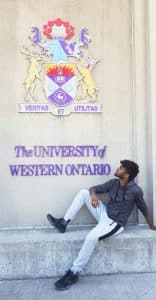 Between Canada and Teach First, Jonathan spent six weeks in Tanzania as part of Warwick University’s Warwick in Africa programme.
Between Canada and Teach First, Jonathan spent six weeks in Tanzania as part of Warwick University’s Warwick in Africa programme.
He spent this period at Mtwara Technical Secondary School in the city of Mtwara in the south-east of the country. Like QE, it is a selective school. It was a memorable experience, he says, during which he was struck by the lack of resources. “The painful part was that all the children were so keen to learn but didn’t have books.”
As he enters his fourth year at Warwick, Jonathan is looking forward to serving as a Team Leader, managing a group of undergraduate student helpers working to ensure that new students are happy and comfortable.
Through completing Teach First, and upon completion of its Insight Programme, he has received an offer to take part in the two-year Leadership Development Programme to become a fully qualified teacher.
“As for my longer-term ambitions, I am currently taking one hurdle at a time. I have my dissertation and group project this year, on the development of busways for megacities and the development of a new building worth £500m. I hope to dive further into either of these fields once I graduate, within construction or transportation.”
He maintains close friendships with a number of Old Elizabethans. “It’s amazing how all our lives have gone in different paths yet we always come back together to fill each other in, catch up and have a good laugh! Top tip to current students: forget quantity, and look for those few special friendships you form at QE that will come with you forever!”

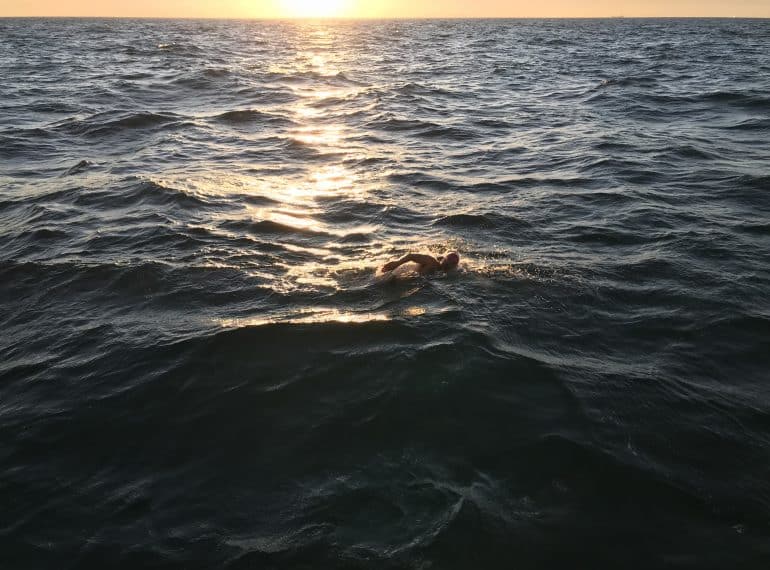
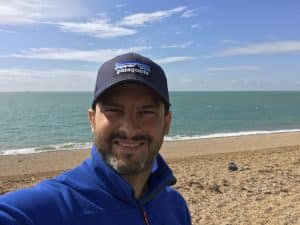 Yet, even though the team were eminently suited to the challenge – Piers (OE 1987–1994) is a high-performance sport and business consultant and a former national-level swimming champion, while two of his fellow team-members are water polo coaches – the swim almost didn’t happen.
Yet, even though the team were eminently suited to the challenge – Piers (OE 1987–1994) is a high-performance sport and business consultant and a former national-level swimming champion, while two of his fellow team-members are water polo coaches – the swim almost didn’t happen.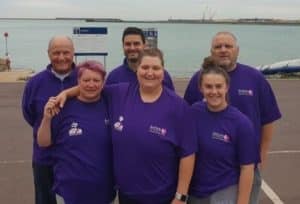 On the last couple of days, the CSPA told us that the weather was getting worse and we would have to look for a date in September, perhaps even next year.”
On the last couple of days, the CSPA told us that the weather was getting worse and we would have to look for a date in September, perhaps even next year.”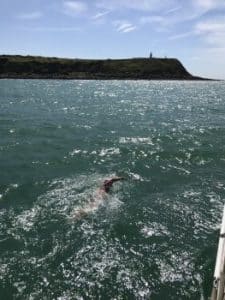 “We returned to Dover and went for it. And rough it was. We started the swim at midnight from Shakespeare Beach, and the initial hours in the dark were against fairly strong swell. The waves did calm a little as the sun rose and we started making good time. Our pilot got us to within metres of Cap Gris Nez and we finished in 13 hours and 3 minutes.”
“We returned to Dover and went for it. And rough it was. We started the swim at midnight from Shakespeare Beach, and the initial hours in the dark were against fairly strong swell. The waves did calm a little as the sun rose and we started making good time. Our pilot got us to within metres of Cap Gris Nez and we finished in 13 hours and 3 minutes.”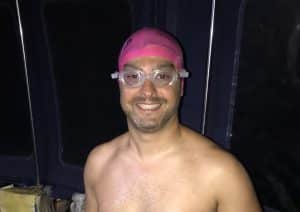 Currently Managing Director of the Podium Performance Group – a consultancy that supports organisations, teams and individuals to develop optimised performance – Piers has also led and advised a range of Olympic and Paralympic sports.
Currently Managing Director of the Podium Performance Group – a consultancy that supports organisations, teams and individuals to develop optimised performance – Piers has also led and advised a range of Olympic and Paralympic sports.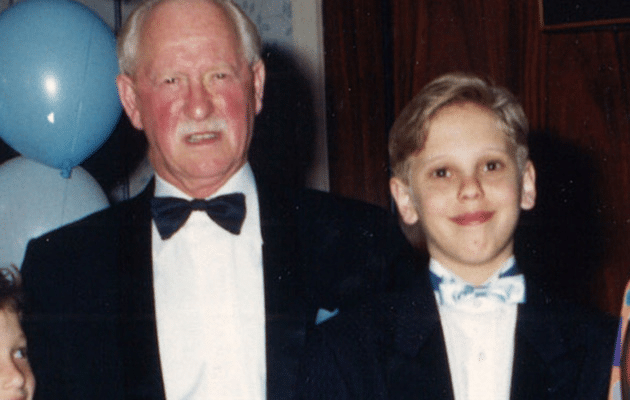
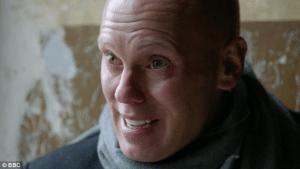 At this point in the programme, Robert (OE 1989–1994) says: “Imagine writing that, how your four sisters, your brother and your parents were wiped out.”
At this point in the programme, Robert (OE 1989–1994) says: “Imagine writing that, how your four sisters, your brother and your parents were wiped out.”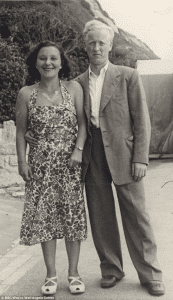 After the war, he was brought to the UK by a Jewish charity, the Central British Fund. He later met and married Lottie, Robert’s grandmother. Morris died in London in 2001 at the age of 78.
After the war, he was brought to the UK by a Jewish charity, the Central British Fund. He later met and married Lottie, Robert’s grandmother. Morris died in London in 2001 at the age of 78.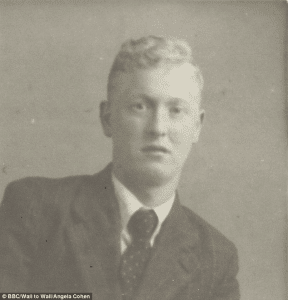 Robert is also seen visiting Lake Windermere, where Morris arrived, and watches footage of the orphans’ journey to England. “As I approach Windermere, I imagine what my grandfather would have felt coming from the dankness and greyness of Schlieben into this – big sky, and green, verdant English loveliness.”
Robert is also seen visiting Lake Windermere, where Morris arrived, and watches footage of the orphans’ journey to England. “As I approach Windermere, I imagine what my grandfather would have felt coming from the dankness and greyness of Schlieben into this – big sky, and green, verdant English loveliness.”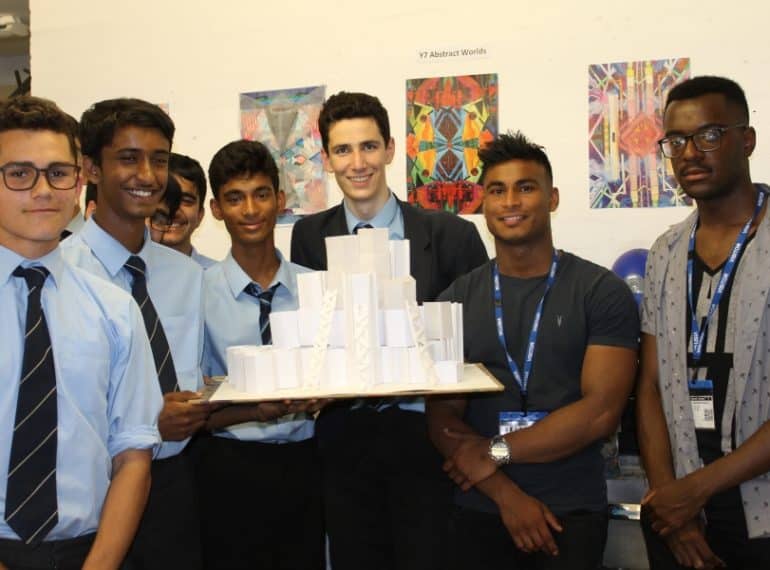
 Two of 2017’s Year 13 leavers, Nabil Haque and Tochi Onuora, who are both studying Architecture at Cambridge, came back to help.
Two of 2017’s Year 13 leavers, Nabil Haque and Tochi Onuora, who are both studying Architecture at Cambridge, came back to help.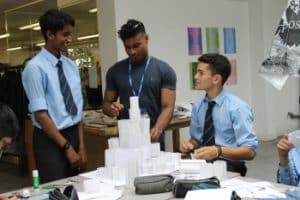 The pieces were judged at the end of the event. The Stapylton House team – comprising Alex Aliev, Nikhil Gulshan, Rakul Maheswaran, Jack Runchman, Aqif Choudhury, Riaz Kalim and Jude Miranda – won overall. Their contribution was praised for the way that it essentially used the same hexagonal shape repeatedly to build up the structure and create something very stable, yet still architecturally interesting.
The pieces were judged at the end of the event. The Stapylton House team – comprising Alex Aliev, Nikhil Gulshan, Rakul Maheswaran, Jack Runchman, Aqif Choudhury, Riaz Kalim and Jude Miranda – won overall. Their contribution was praised for the way that it essentially used the same hexagonal shape repeatedly to build up the structure and create something very stable, yet still architecturally interesting.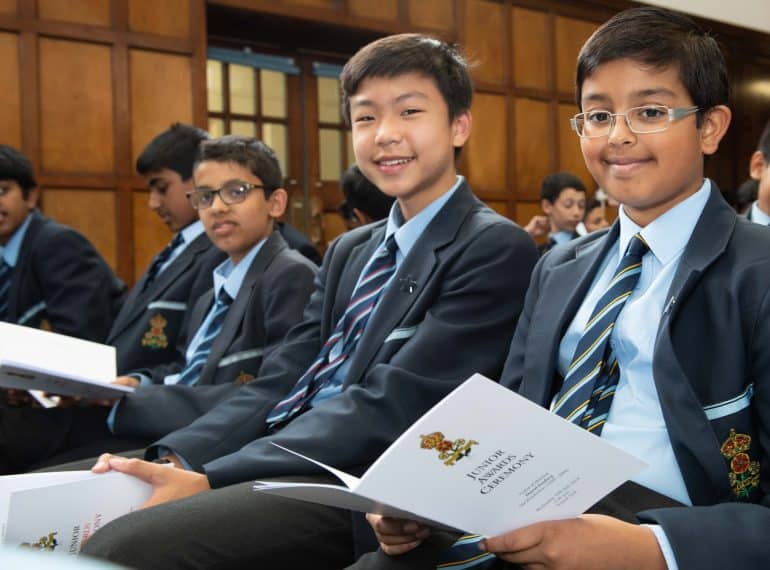
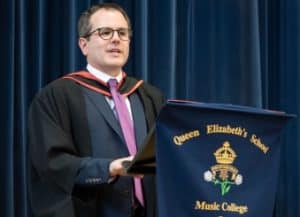 Mr Enright congratulated the award-winners and explained how they could learn from the former South African President and 1993 Nobel Peace Prize-winner, speaking on what would have been his 100th birthday.
Mr Enright congratulated the award-winners and explained how they could learn from the former South African President and 1993 Nobel Peace Prize-winner, speaking on what would have been his 100th birthday.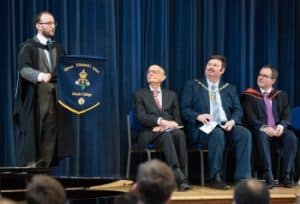 Just as Mr Mandela had spoken of “keeping one’s head pointed towards the sun, one’s feet moving forwards”, the boys should “keep taking those forward steps” and should also be “highly, but realistically, ambitious”.
Just as Mr Mandela had spoken of “keeping one’s head pointed towards the sun, one’s feet moving forwards”, the boys should “keep taking those forward steps” and should also be “highly, but realistically, ambitious”.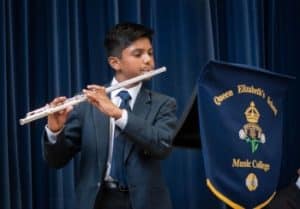 The ceremony was enhanced by music performed by the boys, including three pieces from British composers – Samba Triste from Three Piece Suite by Sir Richard Rodney Bennett, Promenade from Le Tombeau de Couperin by John McLeod and Hypnosis by Ian Clarke.
The ceremony was enhanced by music performed by the boys, including three pieces from British composers – Samba Triste from Three Piece Suite by Sir Richard Rodney Bennett, Promenade from Le Tombeau de Couperin by John McLeod and Hypnosis by Ian Clarke.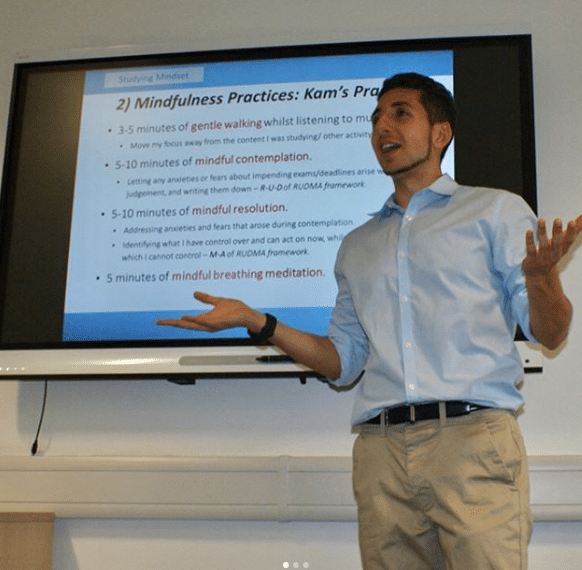
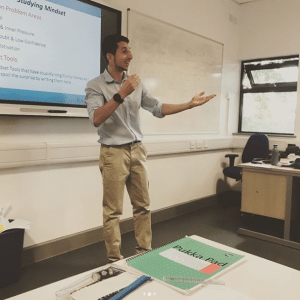 The course was part of the extensive programme QE provides to support senior boys as they make university applications and consider career choices that best match their talents and aptitudes. Applications to Oxford and Cambridge must be made by 15 October for places starting the following autumn. QE boys secured 144 places at the two universities in the five years from 2013 to 2017.
The course was part of the extensive programme QE provides to support senior boys as they make university applications and consider career choices that best match their talents and aptitudes. Applications to Oxford and Cambridge must be made by 15 October for places starting the following autumn. QE boys secured 144 places at the two universities in the five years from 2013 to 2017.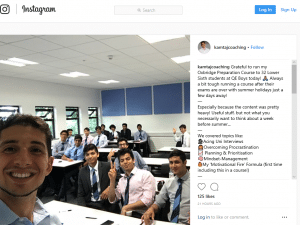 Kam also introduced a new topic, with the QE boys the first to hear about his Motivational Fire Formula.
Kam also introduced a new topic, with the QE boys the first to hear about his Motivational Fire Formula.